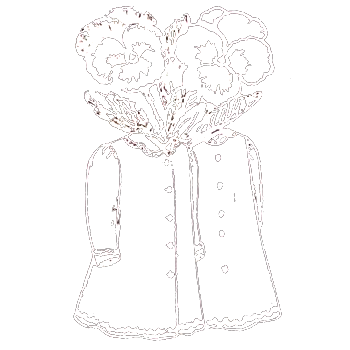Sonnets, first published in 1989 as Tender Buttons Number 1 is widely considered to be one of the most generative and innovative works of contemporary American poetry, radically rethinking the traditional sonnet form. This expanded 25th anniversary edition includes a new preface by Bernadette Mayer, an editor's note by Tender Buttons Press publisher Lee Ann Brown, and a selection of previously unpublished archival material including the Skinny Sonnets, described as "Hypnogogic Word Playing in Reporter's Notebooks" which further expand our map of Bernadette Mayer's groundbreaking works of writing consciousness.
Bernadette Mayer’s Sonnets was originally printed by Tender Buttons Press in an edition of 1000 copies. This edition commemorates its 25th anniversary, reprinting the original text in full with an additional 21 “skinny” sonnets taken from Bernadette’s papers at the UCSD Archive for New Poetry. The publishers would like to thank Rob Melton, Heather Smedberg & the rest of the UCSD Mandeville Special Collections staff for facilitating the first collected publication of these poems and archival images.
PRAISE FOR THE FIRST EDITION
Long ago, in the days of Shakespeare and Du Bellay, the sonnet was something far different from the genteel parlor game it has become today. Bernadette Mayer’s sonnets—sharp, dark and powerful—look back to those strong beginnings.
– John Ashbery
Bernadette Mayer in her Sonnets is like blowing a reed instrument through the frame. So that something really ‘tough’ in the sense of beautiful goes on outside the poems.
– Leslie Scalapino
Bernadette Mayer is an independent experimental writer who likes to bounce artballs off traditional walls. Most of her sonnets are 14-liners, though some are longer—like those of Fulke Greville, Lord Brooke (1554-1628), who favored 18 to 24 lines—and many use the octave-sestet contrast. Otherwise they’re formally unorthodox, with seldom-metrical lines of all lengths and no end rhymes (except for one in rhymed couplets). Written to friends and lovers, mainly about feelings and children and day-to-day life (unlike philosophical F.G.’s), they’re often impulsive—with wild paratactic leaps—but never “confessional.” They’re idiosyncratic, they lack periods, they’re unfashionable, they have question marks, they’re enlivening.
– Jackson Mac Low
Here is the real New Formalism straight from the heart. Bernadette Mayer demonstrates that the sonnet can be surprising, thoroughly elegant, as direct as porn, filled with laughter, anger, daily life, simultaneously intense and casual, wise, literate, quiet, true (see the Incident Reports Sonnets!), courageous, brazen, crabby, tuneful, exact, sly, open to improvisation, willful, impossible to read silently, as necessary as the rent, and completely unforgettable.
– Ron Silliman
With devotion as well as irreverence, Bernadette Mayer’s sonnets deliver the smart and lively, with a spirited purity decked-out in amiable naughtiness. A sonnet is the ideal form for her play of order against chaos in the National Human League, where numbers are not the only score.
– John Godfrey
Bernadette Mayer is the genius of a difficult, libertine language. The love sonnet will never be the same.
– Anne Waldman

